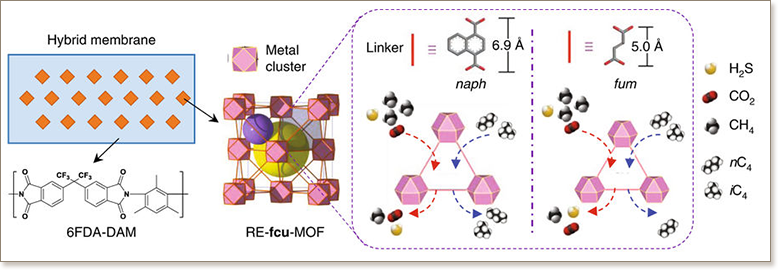


Membrane-based separations can improve energy efficiency and reduce the environmental impacts associated with traditional approaches. Nevertheless, many challenges must be overcome to design membranes that can replace conventional gas separation processes. Here, we report on the incorporation of engineered submicrometre-sized metal-organic framework (MOF) crystals into polymers to form hybrid materials that successfully translate the excellent molecular sieving properties of face-centered cubic (fcu)-MOFs into the resultant membranes. We demonstrate, simultaneously, exceptionally enhanced separation performance in hybrid membranes for two challenging and economically important applications: the removal of CO2 and H2S from natural gas and the separation of butane isomers. Notably, the membrane molecular sieving properties demonstrate that the deliberately regulated and contracted MOF pore-aperture size can discriminate between molecular pairs. The improved performance results from precise control of the linkers delimiting the triangular window, which is the sole entrance to the fcu-MOF pore. This rational-design hybrid approach provides a general toolbox for enhancing the transport properties of advanced membranes bearing molecular sieve fillers with sub-nanometre-sized pore-apertures.